If you ask me, going through the stages of a breakup is probably the toughest thing you’ll ever do. Whether they initiated the split or you did. Whether you saw it coming for months or didn’t expect it till they sat you down and ended things. Lang Leav says, “When you lose a person, a whole universe goes with them.” So for a while, it can be difficult to picture your world without them in it. Or to stop missing what you had or who you were with them.
The aftermath of a breakup brings up a mess of emotions and overwhelm. I can vouch for this. Working through these feelings has definitely been a process for me in the past, though it can look different for everyone. We all go through different stages of letting go. For me, the hardest stage of a breakup was expecting my ex to come back even though I knew they wouldn’t.
So is there a point at which our heart stops breaking into a million pieces every time we think of an ex? To understand this chronology of pain, we spoke to Dhriti Bhavsar, a psychologist with a master’s degree in psychology and a specialization in counseling. Today, she breaks down the getting over a breakup phases.
The 7 Stages Of A Breakup : Explained
Table of Contents
According to neuroscientists, love can be considered a natural addiction. That’s why breaking up can bring on cocaine-like withdrawal. “Relationships trigger the same reward pathways in our brain that addiction does. They release hormones like oxytocin and dopamine, which make us feel elated. So, when a relationship disintegrates, there’s a neurological lack of happy hormones,” explains Dhriti. “Besides, losing someone we were used to turning to, someone we spent so much time talking to, and someone we relied on is bound to be difficult and painful.”
Breakup pain is unbearable. The distress we feel after the end of a relationship can be as immobilizing as grief over a loved one’s death. That’s probably why the stages of getting over a love relationship are pretty similar to the five stages of grief that go from denial, anger, bargaining, and depression to acceptance. While everyone copes with a breakup differently and at their own pace, this usually involves seven stages. According to Dhriti, these stages don’t follow a linear progression or any particular order, and it’s completely normal to skip specific stages, or go back and forth. Here they are:
Related Reading: 19 Dos And Don’ts After A Breakup
1. You are consumed with confusion and questions
“The time immediately after a breakup is the hardest to deal with,” says Dhriti. This is when reality hasn’t quite sunk in and you swing between feelings of rejection, shock, confusion, and disorientation. Or, breakup guilt, if you did the dumping. It is also not uncommon to move straight to denial or question whether the relationship is actually unsalvageable.
You may fixate on all the things they said to you, in order to look for signs that contradict their intention to split up. Dhriti adds, “Coming to terms with the end of a relationship and moving out of the denial stage is the hardest stage of breakup for some.” As the immensity of the loss begins to dawn, questions like these start to clog your head:
- Was breaking up the right thing to do?
- Why didn’t I see it coming?
- How could she do this to me after…?
- If he planned on breaking up, why did he…?
- Maybe they were just angry and didn’t mean to end things…
These whys and hows come mingled with intense emotions and pain that physically hurts, like a burn or broken arm would (research has found that it really could).
2. In one of the relationship breakdown stages, you slip into rumination
You keep the breakup episode on constant replay to figure out who or what caused the split. At the same time, you can’t help but wonder how your ex is holding up. As time passes, you may cycle between periods of intense activity to avoid dealing with the pain and thinking compulsively about them.
According to Dhriti, when looking back on long-term relationships, people tend to slide into:
- Euphoric recall: Recollecting only the good parts and remembering the relationship as much better than it was. A Reddit user shares, “There’s a thing called dumpers’ remorse. It’s where dumpers look back on their relationship/ex with rose-colored glasses and forget all the shi**y things in the relationship. I still love my ex. I still miss him so much. But I wrote down a list of every reason that led me to break up with him in the first place, and whenever I feel weak, I just read it.”
- Ambivalence: Dhriti explains what it means, “Switching between the positives and negatives. That means going from thinking ‘I really felt like I had met the one’ to ‘but they lied and broke my trust'”
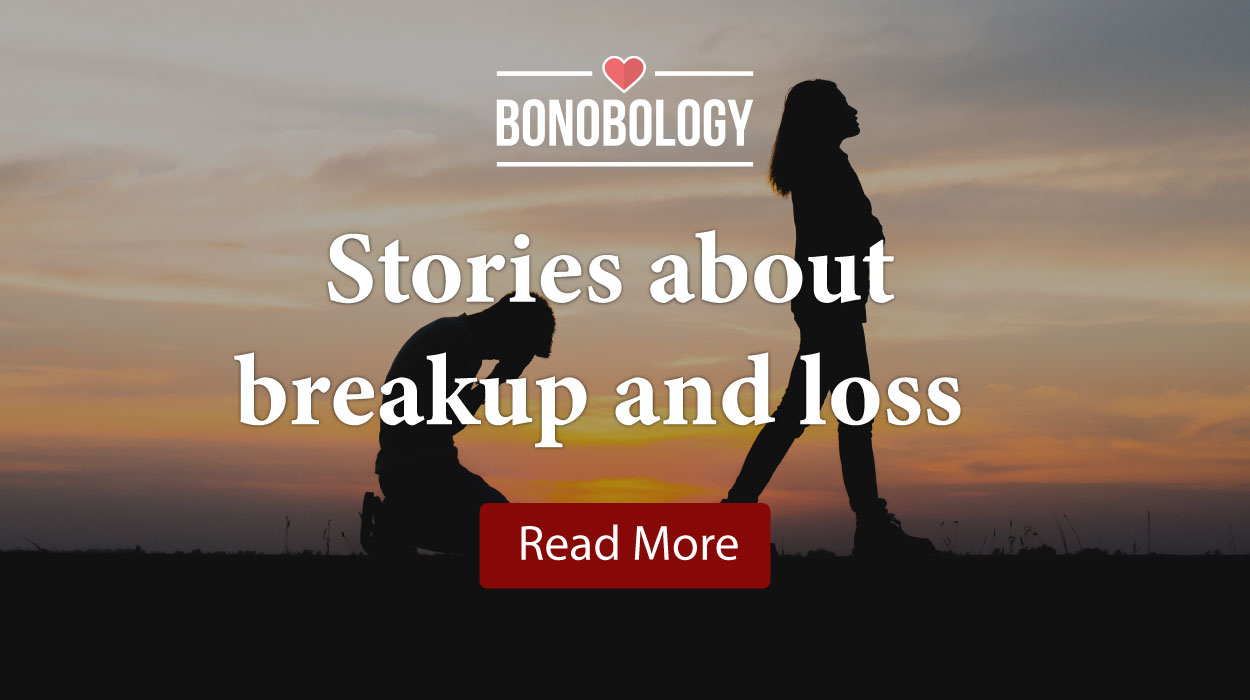
While some studies prescribe distraction to stop obsessing over an ex, others say reflecting and talking about a breakup can help you move on. However, stalking your ex’s social media or checking up on them through mutual friends won’t help, says research. If you’re feeling stuck with intrusive thoughts, following the no-contact rule and turning to your support system or talking to relationship experts like a licensed counselor or a licensed therapist could help you heal from a painful breakup.
3. You bargain, with yourself or your ex
In the early stages of grieving for a relationship, regret and self-doubt can often surface. You resist letting go of the ex in most of the relationship breakdown stages. “A lot of ‘what ifs’ and ‘should haves’ will come up as you spend time thinking about what could have gone differently. You might even think of reaching out to your former partner again,” says Dhriti.
A study mentioned above says, “Lovers also relapse the way drug addicts do. Long after the relationship is over, events, people, places, songs, and/or other external cues associated with their abandoning sweetheart can trigger memories and initiate renewed craving.” When this happens, should you reach out to your ex? Here’s why you shouldn’t, according to Dhriti:
- Bargaining is one of the stages of a breakup where we don’t remember things to be as bad as they were
- Even if we do, we are bent on fixing them. However, some relationship problems cannot be worked through
- Going back may hinder your healing: You may spend time and effort only to end up with more heartbreak
- If you find yourself ready to do anything for a do-over, remember that ignoring deal-breakers and personal boundaries to resurrect a romantic relationship can harm your mental health and self-esteem
- Bargaining can also get you stuck in an on again, off again relationship, which, research suggests, will only breed dissatisfaction
Related Reading: 10 Types Of Breakups That Get Back Together With Timelines
4. You are awash in anger
What is the longest stage of a breakup if you have anger issues? Naturally, this one. Once regret recedes, looking back starts to feed rage. Hard as it can be to imagine, this is a real step toward healing — Only if it doesn’t cross into the land of aggression. Dhriti explains,
- “Anger is the first turning point toward acceptance and coming out on the other side of the breakup
- It is a sign you have come out of denial and have come to terms with the breakup a little more, whether you want to get back at your ex, or you feel angry about the betrayal, injustice, or how things ended
- In this stage, you may feel enraged while thinking about the split or all the annoyances and frustrations from before the breakup
- This anger may even turn inward as you reflect on all the things they or you did or didn’t do in the relationship”
Instead of bottling it all up and going on a rebound dating spree later, one healthy way of tackling post-breakup anger is to channel it elsewhere. “The first step toward dealing with any emotion is recognizing its purpose and understanding it,” says Dhriti. The next step is to find an outlet, like:
- Talking to someone you trust, like friends and family
- Rage writing, it helps when you’re feeling heartbroken. But it doesn’t mean sending off an angry text to your ex. A Reddit user advises, “I’ll be honest, if you send it you will have a moment of relief, followed by regret. Best case scenario, the one receiving it won’t care, worst case, it will solidify their choice. Write your feelings out, vent on paper, vent to friends. But not to someone who will disregard your words and their worth.”
- Getting some exercise (It can even be an effective antidepressant, according to this book)
5. Wallowing is one of the stages of letting go of the past
Once the anger boils down, the reality of loss begins to sink in. When you finally confront the them-shaped hole where your future plans once lay, the grieving process begins. In this stage of a breakup, it is perfectly normal to wonder if you’ll be the one who never got over the breakup. Or to still feel “in love.” As you work to let go, you can expect to experience:
- Sadness, depression, irritability, or wanting to isolate
- Apathy or emotional numbness as you feel empty, dissociated from your surroundings, and lose sense of time
When you’re heartbroken after a breakup and negative thoughts eat away at you, focusing on self-love, self-care, or things that make you feel better may be more helpful. Dhriti suggests:

- Keeping a journal. A study calls this an effective coping mechanism and found that “writing about positive aspects of the breakup can increase positive emotions”
- Looking for the thoughts or patterns that are keeping you from moving on (“What if I never find love again?”) and reframing them (“I am uncertain about the future and that scares me”)
- Reaching out to loved ones or mental health professionals like a clinical psychologist, or a licensed marriage, or family therapist
- Eating healthy. As per Forbes, an analysis of 15 studies confirms that “consumption of healthy foods such as vegetables and fruits is associated with the most profound psychological benefits following stressful periods, such as a breakup.” From soup to nuts to chocolate, this is a great scientific read on why certain foods help you get over a breakup efficiently
- Cooking a simple meal. A 2016 study in the Journal of Positive Psychology says that those involved in small and daily creative pursuits, such as cooking and baking, look forward to the next day more
There is hope in science. A study was conducted on people who were at the receiving end of breakups. When they were shown photographs of their ex, they all showed activation in brain regions associated with feelings of intense romantic love, attachment, physical pain, craving, addiction, as well as calculating gains and losses from the relationship. “However, the greater the number of days since rejection, the less the activity in a brain region (the ventral pallidum) associated with feelings of attachment,” it found.
6. Grieving for a relationship finally ends when you come to accept it’s over
This is one of the final stages of a breakup when you’ve done the thinking, appraised your former relationship, and made your peace with why you’re never, ever getting back together. You are no longer resisting the idea of letting them go or moving forward without them. This can even feel like surrender or resignation, where you’ve finally decided to give up trying to revive the relationship against all odds.
So when can you expect to reach this stage? “Once you’ve made sense of everything that went down, you’ll have finally moved past the separation and won’t be in so much pain. Rather, you will feel more at peace,” says Dhriti. A study tells us something important: Once you regain a clear sense of who you are outside your former relationship, you can consider yourself all set to finally move on.
Related Reading: How To Get Over Someone You See Every Day And Find Peace
7. Thank you, next
You’ve done the math on the relationship and calibrated the imperfections. You’ve made note of what didn’t add up and learned the lessons. And finally, you’ve come to a point where you can see yourself seeing someone new. Starting afresh may not be without some misgivings and mixed emotions, such as hope mingled with fear.
“Some people feel afraid of repeating history, many subconsciously do. Some try to move on without acceptance. And this leads to problems in their new relationship,” says Dhriti. So, if you do decide to date again, keep the focus firmly on yourself and the present. Don’t fall into the trap of comparison dating or calculating how a new person measures up to a former flame. Unless you plan to remain stuck in the past. And who knows for how long?
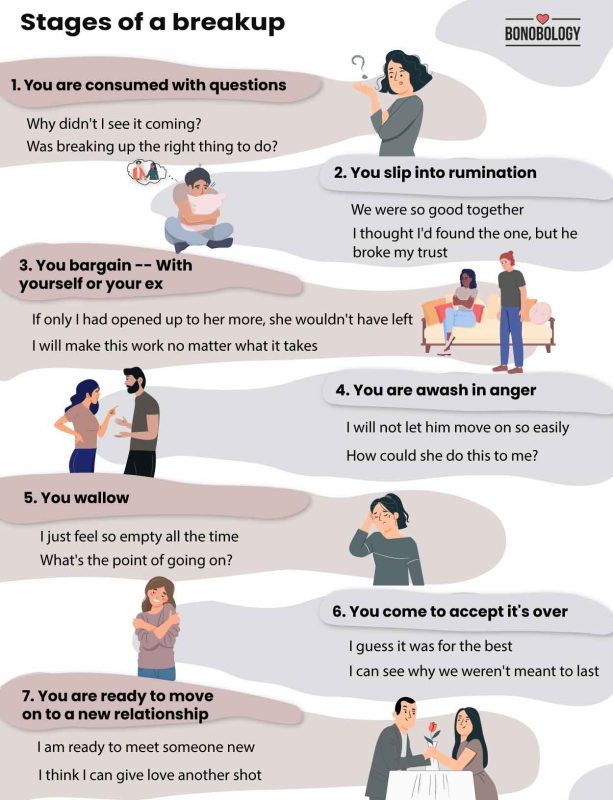
How long does it take to heal from a painful breakup?
Helen Fisher scientifically explains in a Ted Talk, “When you’ve been dumped, the one thing you love to do is just forget about this human being, and then go on with your life — But no, you just love them harder.” So how long do the specific stages of a breakup last? And what is the longest stage of breakup? Is it true that it takes half the time you know someone to get over them?
Dhriti says, “Hard as it may seem in the immediate aftermath of a relationship’s dissolution, the feelings of sadness and loss you feel do eventually pass. There’s no fixed time limit for any of the ‘getting over a breakup’ phases. Depending on their own nature and the relationship dynamic, people spend the most time in anger or sadness. Though some – women especially – may already be emotionally detached before they decide to break things off completely.”
Interestingly, research shows that people tend to overestimate how long it will take them to recover from a breakup. In the book It’s Called a Breakup Because It’s Broken: The Smart Girl’s Breakup Buddy, Greg Behrendt posits that the time it takes to feel better about a breakup is “directly proportional to the time it takes to feel better about yourself.” We couldn’t agree more.
Key Pointers
- The stages of getting over a breakup follow a similar path as grief recovery
- Initially, you may struggle to make sense of the breakup. There will be lots of whys, whats, and hows, but no clear answers
- Next, you may experience intrusive thoughts about your former relationship or ex
- Then regret and self-doubt may creep in and prepare the ground for bargaining, where you’ll feel ready to do just about anything to rekindle the relationship
- The first turning point toward acceptance and coming out on the other side of a breakup is anger, which is usually followed by periods of sadness
- The stages of a breakup don’t follow any order; you may skip some entirely or go back and forth between them till you finally recover from heartbreak and move on
Breakup pain is unbearable. Psychologist Guy Winch observes, “Unlike real hurricanes, heartbreak has no eye — It offers no reprieve and it leaves no place to take shelter. We thus remain exposed, drenched, and miserable until it passes.” So getting over heartbreak will take some doing. But it can be done.
Dhriti advises, “Reframing all the negative automatic thoughts and replacing them with positive affirmations takes work. And it can’t be done immediately after a breakup anyway. If you’re struggling, do reach out to experts to cope with the breakup grief.” We hope you found this article helpful. If you are looking for some professional help or advice, our counselors would be happy to help.
FAQs
There’s no fixed time limit for the seven breakup stages. The stages aren’t linear and it is perfectly normal for people to skip some of them entirely. Like, when someone is already emotionally detached before they decide to break things off. It is also normal to go back and forth between the stages till you are ready to heal from a relationship’s dissolution.
A breakup is final if there are irreconcilable differences, one partner has done something the other cannot move past, or both partners have given up on the relationship. Sometimes, after a breakup, people get stuck in on-again, off-again relationships. But such relationships only make it difficult to move on and cause more hurt than the breakup itself.
How To Love Yourself Again After Getting Your Heart Skinned – 17 Tips
Your contribution does not constitute a charitable donation. It will allow Bonobology to continue bringing you new and up-to-date information in our pursuit of helping anyone in the world to learn how to do anything.

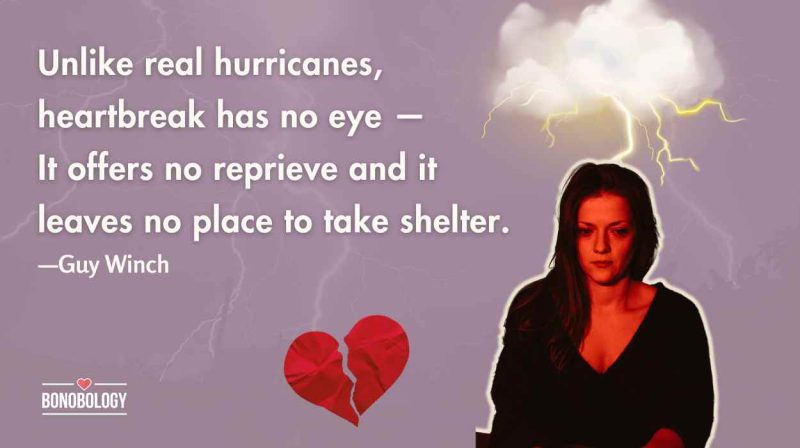
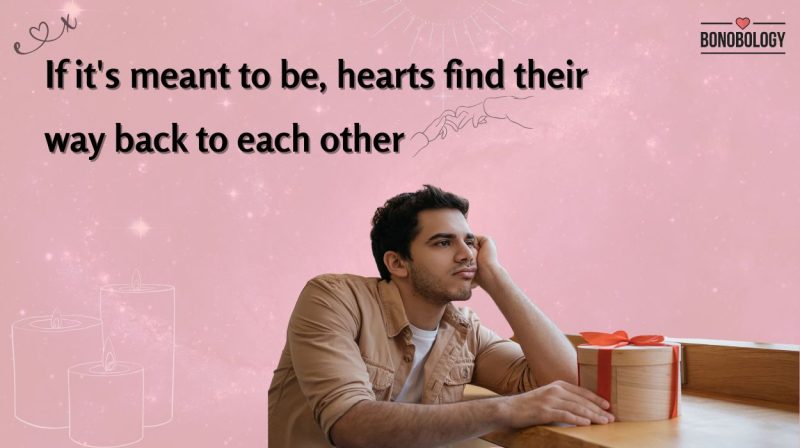
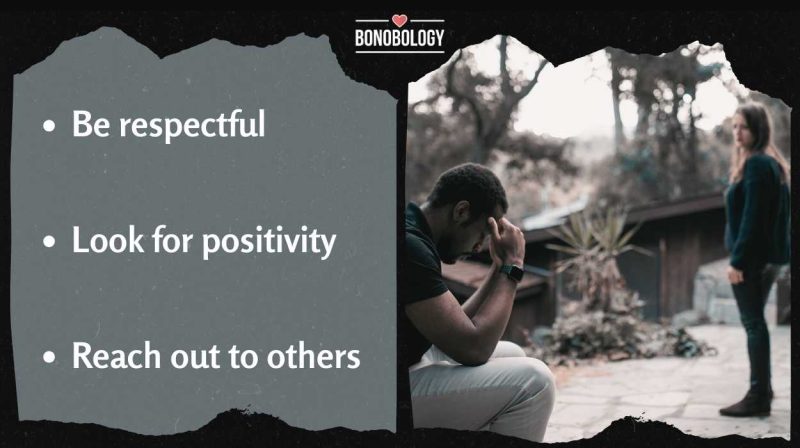

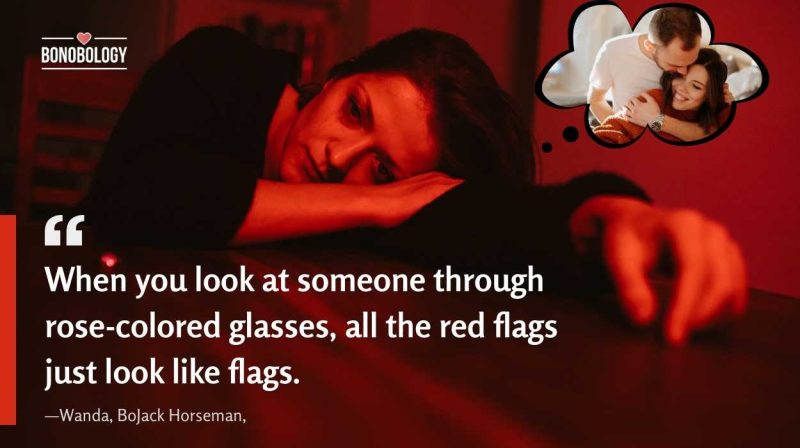
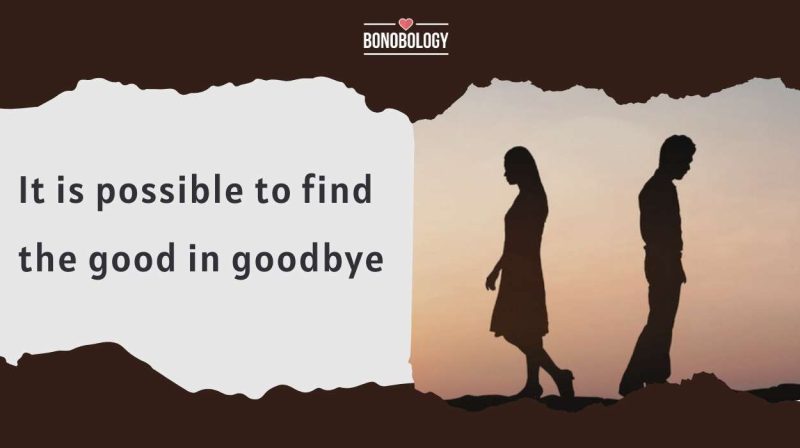

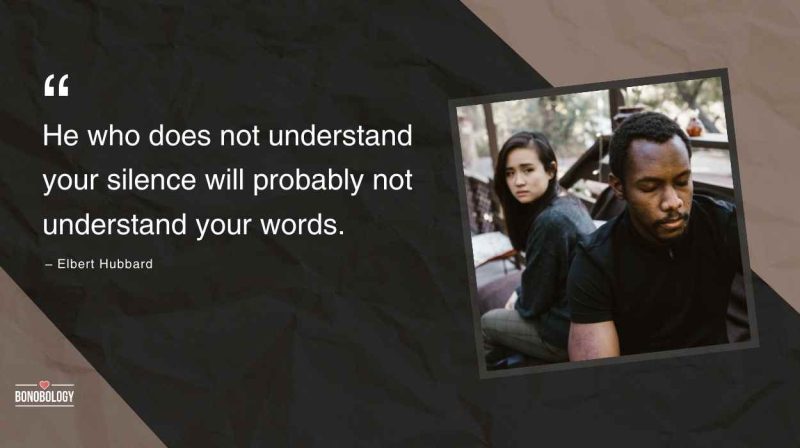
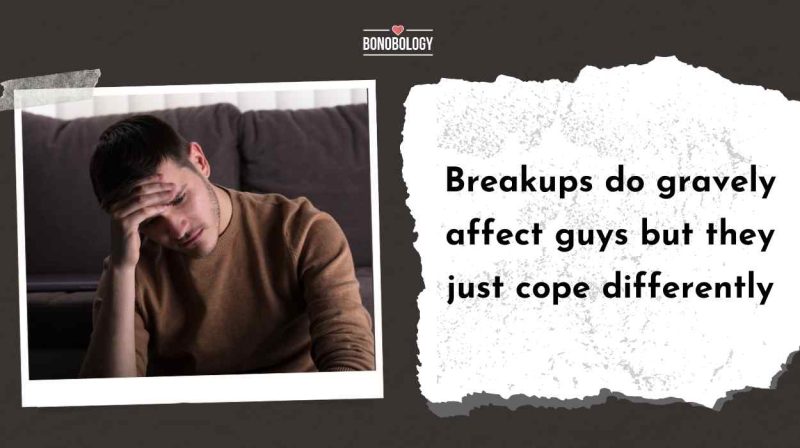




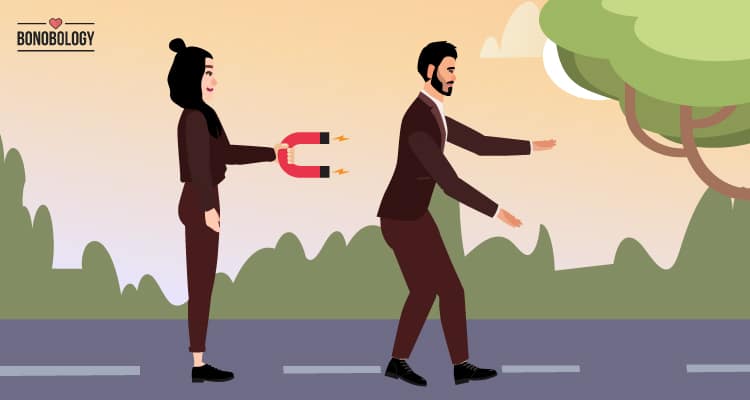



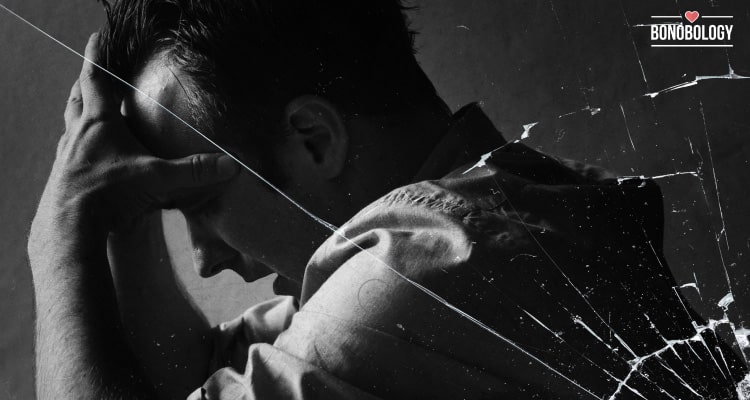
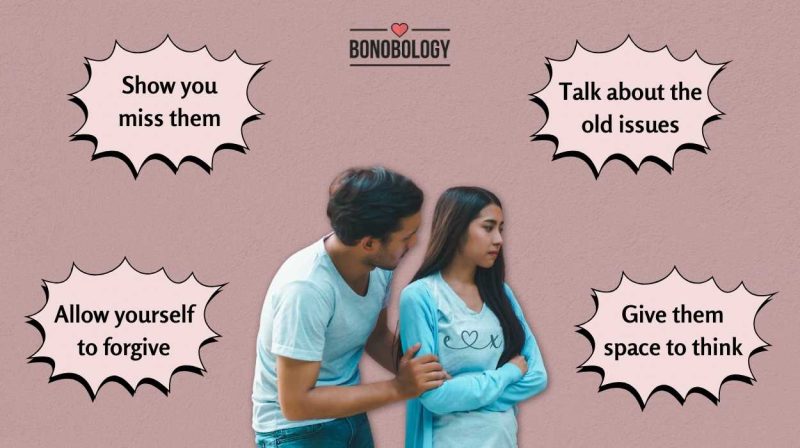
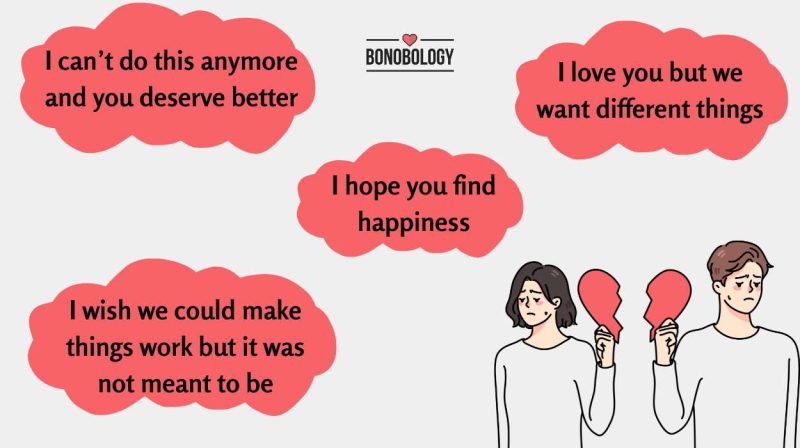

Featured
Will She Come Back? 15 Signs You’ll Get Back Together
How To Emotionally Let Go Of Someone You Love: A Therapist Advises
Ghosted After First Date? Why It Happens And How To Deal
Dumpers Remorse: Meaning, Signs, and Stages
How To Break Up With Someone Without Hurting Them: 10 Rules
How To Stop Thinking About Your Ex—15 Expert-Backed Tips
The Right Way To Use Power Of Silence After A Breakup
Why Do Breakups Hit Guys Later? 7 Intriguing Reasons
Ex In Your Dreams? Find Out What Does It Mean When You Dream About Your Ex
I Hate My Ex: 13 Reasons It’s Okay And Tips To Move Forward
11 Psychological Tricks To Make Your Ex Regret Leaving You
How To Break Up With Your Girlfriend: 21 Dos and Don’ts
How To Get Your Ex Back When He Has Moved On? 15 Tips
How To Lose Feelings For Someone You Love And Let Go
Do Rebound Relationships Ever Work?
Will He Come Back? 15 Signs That Indicate He Will And What To Do
15 Sure-Shot Signs He Is Heartbroken Over You
13 Ways To Get Back With Your Ex
How To End A Relationship On Good Terms
How To Become The Kind Of Girl Guys Regret Losing? 11 Tips